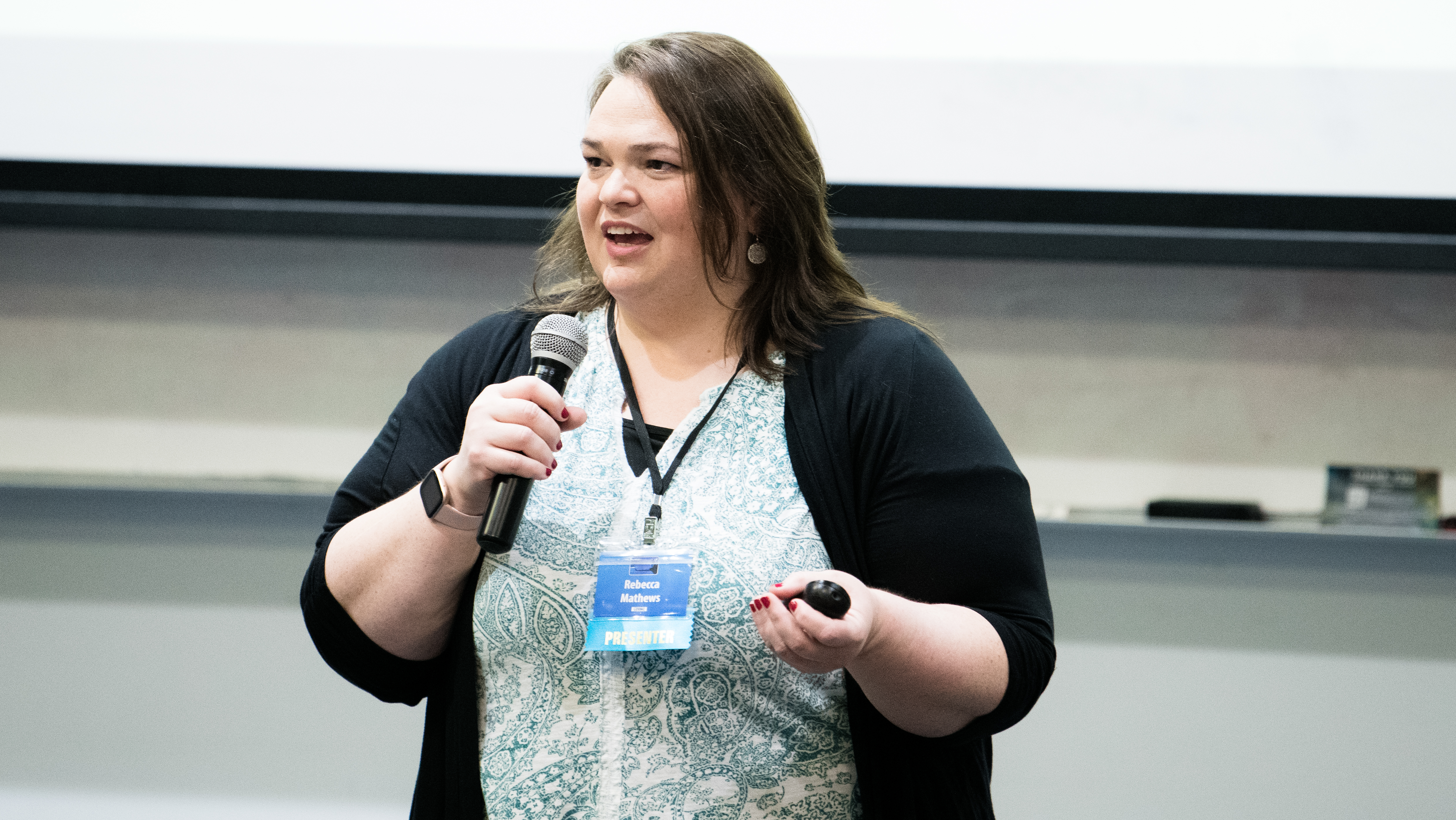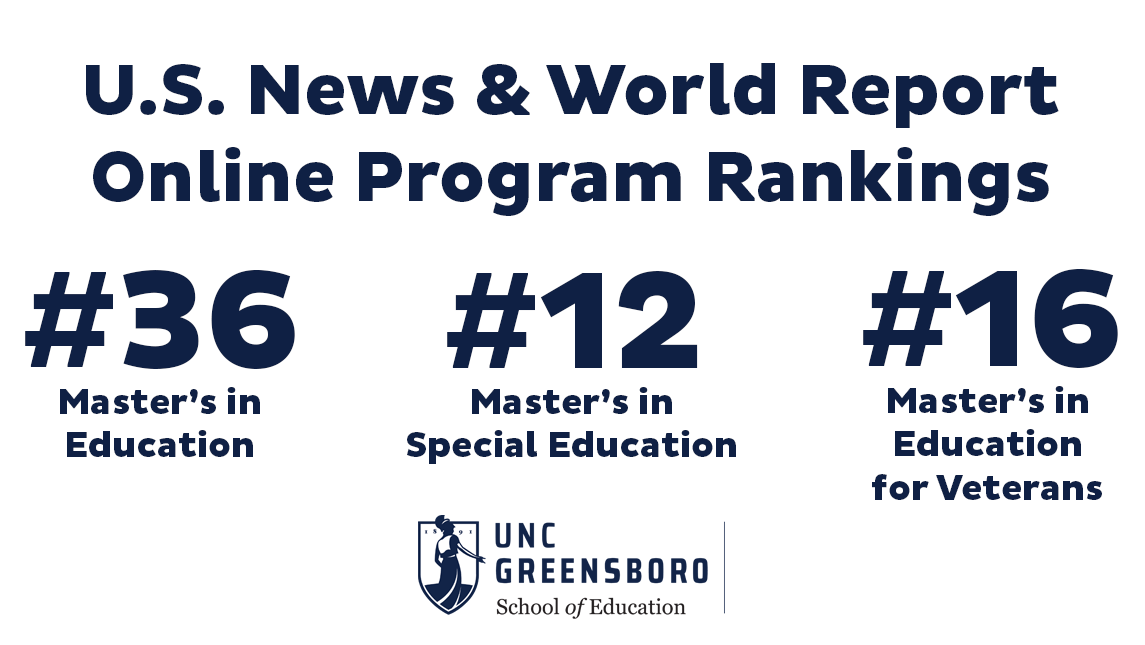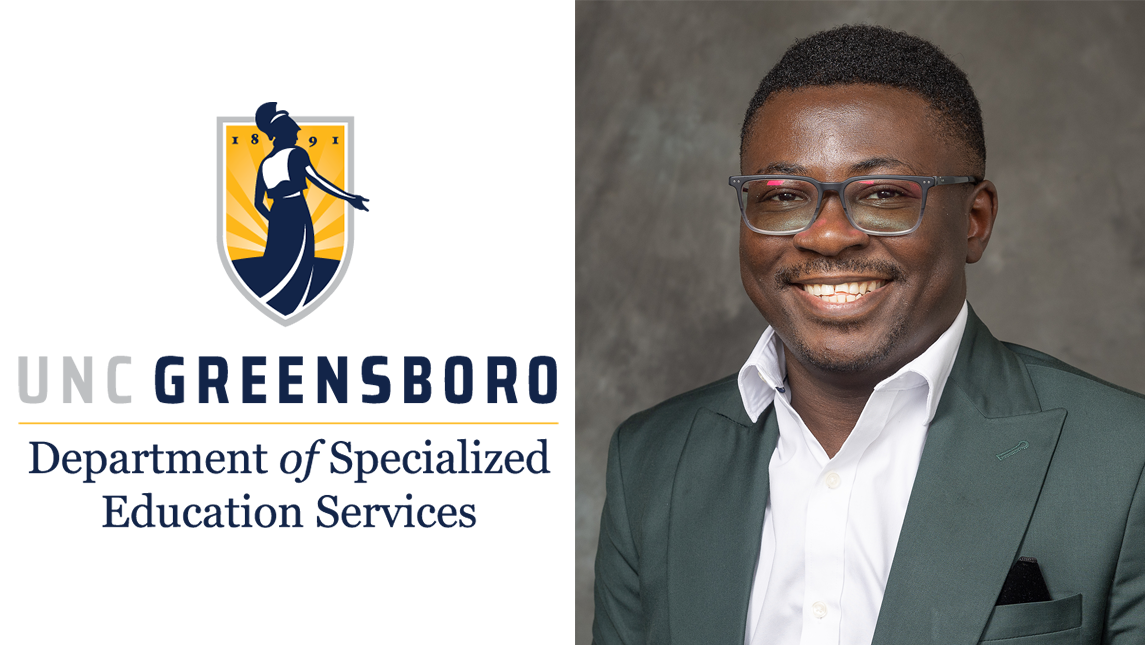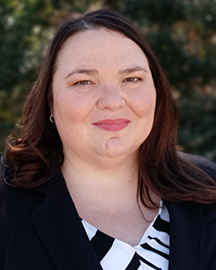
Dr. Rebecca Mathews, a clinical assistant professor in the Department of Counseling and Educational Development (CED), spent 18 years as a counselor, supervisor, consultant, and educator in the community and hospitals. She then decided that she wanted to help train the next generation of counselors and joined the faculty of the nation’s third-rated program at UNCG in 2020.
Why UNCG?
Knowing that she wanted to have an impact on future counselors and realizing that she would be able to work with industry-recognized experts, Mathews jumped at the chance to join the UNCG program.
She said, “It’s such an honor to work with the best-of-the-best in my field. Up and down the hallway there are experts in supervision, research, and evaluation. Every day, I experience such gratitude that I get to rub shoulders with them and see the work that they do and the impact that they have.”
Looking at the institution, Mathews enjoys that UNCG puts a focus on allowing access to education, especially first-generation college students.
Mathews said, “The university works really hard to help students from all backgrounds see themselves here. They see that they can be successful here and how education can really springboard them to the goals they have in their lives. The mission and values of UNCG really align quite closely to my own beliefs about education being accessible and helping students be successful.”
Current Projects
Trauma-Informed Professional Practice (TIPP) for Educators and Mental Health Professionals
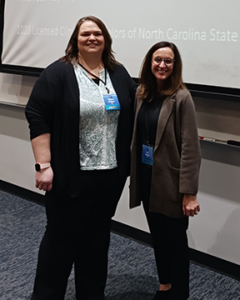
The Trauma-Informed Professional Practice (TIPP) programs for K-12 educators and mental health professionals are training programs designed to strengthen trauma-informed practices. The online series includes video modules for practitioners that help participants gain an understanding of trauma, trauma reactions, and the physiological effects of trauma.
TIPP was developed in partnership with the North Carolina Academy for Stress, Trauma, and Resilience (NCA-STAR).
Suicide Prevention
While her work with TIPP is important, Mathews feels stronger ties to her work in suicide prevention.
She said, “The work of suicide prevention and intervention is near and dear to my heart. I want to be a voice that helps individuals understand that even if they’re surrounded by darkness, that there really is a pathway forward. They can have hope. Things really can get better.”
Mathews works with both practitioners and community members – including those in schools, churches, and community agencies – to help them recognize warning signs and learn ways to intervene.
Her work in this area has led to research on socio-cultural factors that are associated with suicide among college students as well as a partnership with the North Carolina Physicians Health Program to better understand the prevalence of suicide among physicians within the state.
She has found that often within weeks of a training session, she will get a phone call or an e-mail from one of the participants who came across a student or someone in their church who said things that made them wonder if the person was having suicidal thoughts. They say that the training allowed them to take the right steps, and the person has begun receiving treatment.
Mathews said, “To me, the most important work that I do is around helping. It really is life-saving work, and I consider it an honor to help prevent suicide through research and training.”
Working With Students
Knowing that she wanted to help develop counselors, Mathews is always excited to work with students, help them open doors, and allow them to get hands-on experience.
With TIPP, students have helped to analyze literature, assisted with creating and building out evaluations for individuals who completed the trainings, and aided in social media advertising.
Mathews said, “A big area in which I get to work with students is helping them consider what things they want to learn more about. Our first-year master’s students hold a mini-conference as part of a professional orientation class where they are doing literature reviews. So, they research all of these things and then… they get to showcase what they’ve done, what’s been interesting. Every year that we’ve done that students have taken what they have done for the class, and we’ve worked to help them figure out how they can present it at field-specific conferences. And they’ve been able to do that at local, state, and national conferences.”
What To Do With $1 Million
Research and outreach require funding. While most funding is found through grants and internal sources, philanthropic efforts can make a difference in the work being done.
Looking at the impact $1 million could have on her work, Mathews would focus on expanding her efforts on suicide prevention. She would love to train every student on the UNCG campus to recognize suicide warning signs and to know how they can intervene. Mathews would use that funding to expand training into the Greensboro community.
She said, “How much could we push back some of the darkness that people are experiencing, and how much more light could they have in their life, because people knew what to look for and knew how to intervene.”
